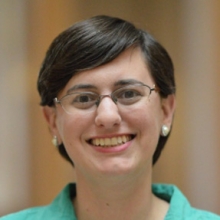Diversity in the Stacks aims to build library collections that represent and reflect the University’s diverse population.
A few years prior to the Covid-19 pandemic, Katie Rawson, the Director of Learning Innovation at the Penn Libraries, wrote in Dining Out: A Global History of Restaurants, “In the West people are eating out more and more…Much of the food we eat at home is either now taken out from restaurants, delivered to the door, prepared at supermarkets, or bought at those same markets already [ready for consumption].” This fact makes it all the more striking that baking and cooking became so popular during the early months of the COVID-19 pandemic that it led to a flour shortage across the country.
Why has cooking and baking become so popular during the pandemic, and why has this trend received so much attention? Cooking is a source of comfort, normalcy and solace, and it provides an outlet for creative urges that can’t be met in more familiar ways. Whatever the reason, the participation and interest in cooking and baking during pandemic-enforced isolation points to something essential about food and the traditions surrounding it.
For people making sourdough bread, cheesecake, or another dish for the first time, there is no substitute for a recipe. Although recipes are now often found online, physical cookbooks-- such as the thousands held by the Libraries--have advantages. They often include high quality images, are easy to maneuver in the kitchen, and provide a welcomingly tactile experience in the era of Zoom fatigue.
Scholars (and students!) at the University of Pennsylvania increasingly incorporate the study of food into their research and teaching. For instance, Heather Sharkey, Professor of Modern Islamic History in Penn's Department of Near Eastern Languages, teaches a course titled Food in the Islamic Middle East, a seminar that approaches past and present Middle Eastern and North African societies through food. For a final assignment, students were asked to cook a dish from one of the Middle Eastern e-cookbooks in the Penn Libraries collection.
Dr. Sharkey explains, "Cookbooks provide insights into culture, heritage, and history writ large. We can use cookbooks to trace changes in trade routes and tastes by tracking, for example, the entry of New World foods like tomatoes, potatoes, and chili peppers into Middle Eastern cuisines.”
Cookbooks also reveal contemporary cultural trends and migration patterns. “I have been noticing the new entry of chocolate into Middle Eastern desserts, most of which today comes from West African countries like Ghana and Côte d’Ivoire. Sometimes chocolate seems to be displacing local ingredients like dates; at other times, it’s added to them. Since the pandemic struck in March, I started baking a recipe for a Banana and Medjool date cake (which also contains chocolate!) from Joudie Kalla’s cookbook Palestine on a Plate.”
Dr. Sharkey notes that you can see similar adaptations of centuries-old cuisine right here in Philadelphia. “Michael Solomonov published his influential cookbook Zahav as an outgrowth of his marvelous Philadelphia restaurant of the same name, which showcases the influence of migration, travel, and culinary innovation on Israeli-American cuisine. Thanks to cookbooks like his, members of the Penn community stand a chance of making stupendously good hummus at home.”
Here is a sampling of the cookbooks featuring food of the Middle East that you can find at the Penn Libraries.
- Scent of Pomegranates and Rose Water: Reviving the Beautiful Food Traditions of Syria
- Food of Israel: Authentic Recipes from the Land of Milk and Honey
- Food of Morocco: Authentic Recipes from the North African Coast
- Edible Mosaic: Middle Eastern Fare with Extraordinary Flair
- Scents and Flavors: A Syrian Cookbook
- New Book of Middle Eastern Food
- Arabesque: A Taste of Morocco, Turkey, and Lebanon
- Egyptian Cooking and Other Middle Eastern Recipes
- Cookbooks published by Interlink Publishing
In addition, the Penn Libraries holds cookbooks featuring a wide range of regional and ethnic cuisines, including African, African American, American Southern, Italian, Chinese, South Asian, and much more.
Hungry for more resources? The Libraries have created a guide to doing research in Food Studies. Among other research tools and collections, it includes information about the extraordinary culinary collections at the Kislak Center for Special Collections, Rare Books, and Manuscripts, which includes cookbooks and other culinary works from the 15th to the 21st centuries.

Sample the cookbooks featuring food of the Middle East that you can find at the Penn Libraries.
